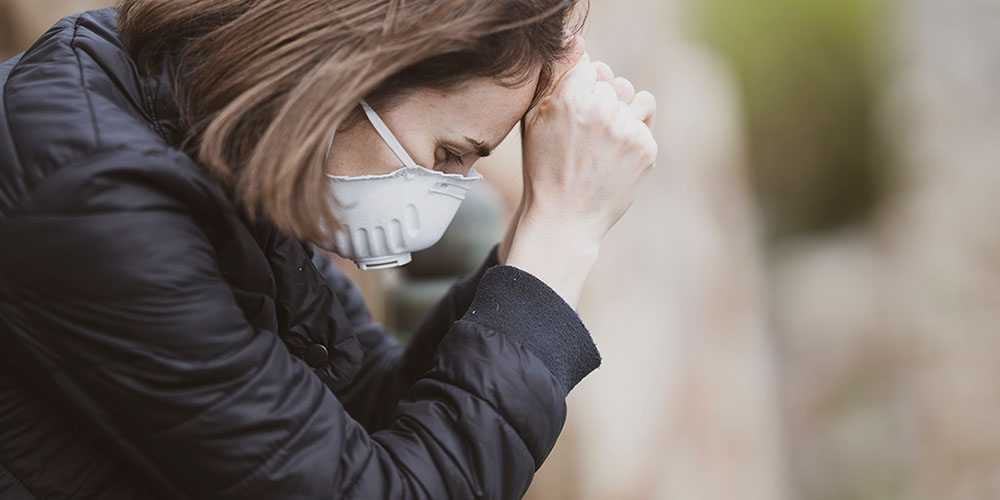Coronavirus lockdown: Every second person feels more stressed
A survey by the University of Basel of over 10,000 people from throughout Switzerland has shown that around half of respondents feel more stressed in lockdown than they did before the coronavirus crisis. In the lockdown phase under study, the frequency of severe depressive symptoms almost tripled. On the other hand, 26% of respondents reported a drop in stress during lockdown. The survey also identified behaviors that can help reduce stress.
04 May 2020
The results come from a survey analyzing the period of 6-8 April 2020 – three weeks after the lockdown was first announced. During this period, 10,472 individuals from throughout Switzerland took part in an anonymous online survey.
Due to the nature of the data collection, this is by definition not a representative survey. However, in terms of socio-demographic characteristics, the respondents represent a broad cross-section of the Swiss population. All reported correlations are statistically highly significant.
Stress and depressive symptoms
Almost half of respondents feel more stressed in lockdown than before the coronavirus crisis. Among the main drivers of this increase in stress are changes in work/studies, strain from restrictions to social lives, and strain related to childcare. Depressive symptoms increased in 57% of respondents. The frequency of severe depressive symptoms increased from 3.4% (prior to the coronavirus crisis) to 9.1% (in lockdown).
Surprisingly, 26% of respondents actually feel less stressed in lockdown than they did before the crisis (for 24.4% there was no change). The impact of the coronavirus lockdown on stress levels was seen across the board, regardless of gender, age, religious affiliation or level of education.
Stress-reducing factors
The researchers were able to identify a number of behaviors that were associated with a lower incidence of stress:
- Physical activity (both intensive, e.g. jogging, and light, e.g. walking)
- Devoting more time to a hobby or a new project
- Consuming less coronavirus-related news
Some of these factors are already known for their capacity to reduce stress from previous intervention studies. The new data shows that these correlations are also apparent during a pandemic lockdown.
The survey continues
The anonymous online survey at www.coronastress.ch is continuing in order to investigate how the loosening of the lockdown affects psychological well-being.
Original source
Dominique de Quervain et al.
The Swiss Corona Stress Study
doi: 10.31219/osf.io/jqw6a
Further information
Prof. Dr. Dominique de Quervain, University of Basel, Transfaculty Research Platform Molecular and Cognitive Neurosciences MCN, phone: +41 61 207 02 37, email: dominique.dequervain@unibas.ch



